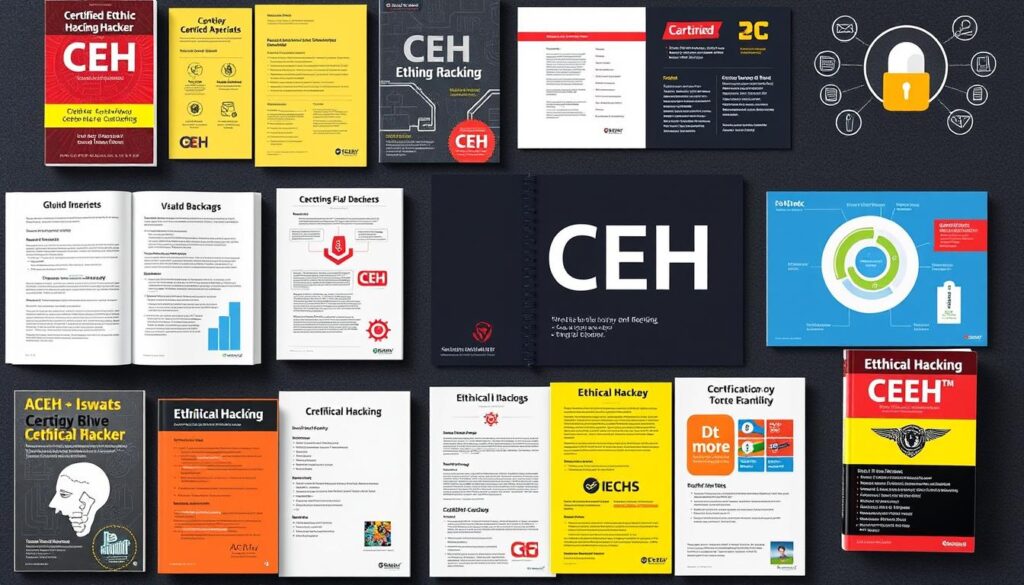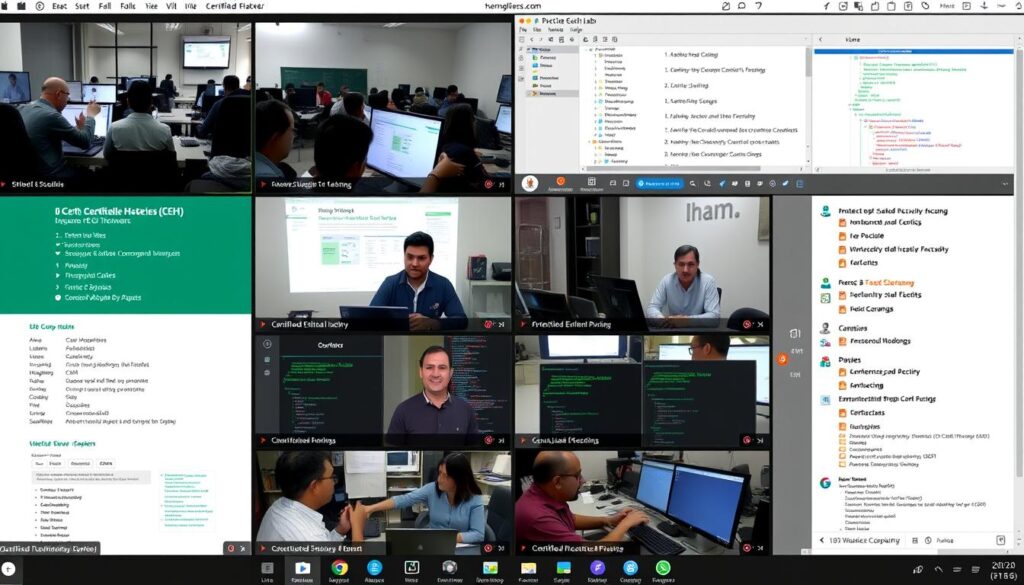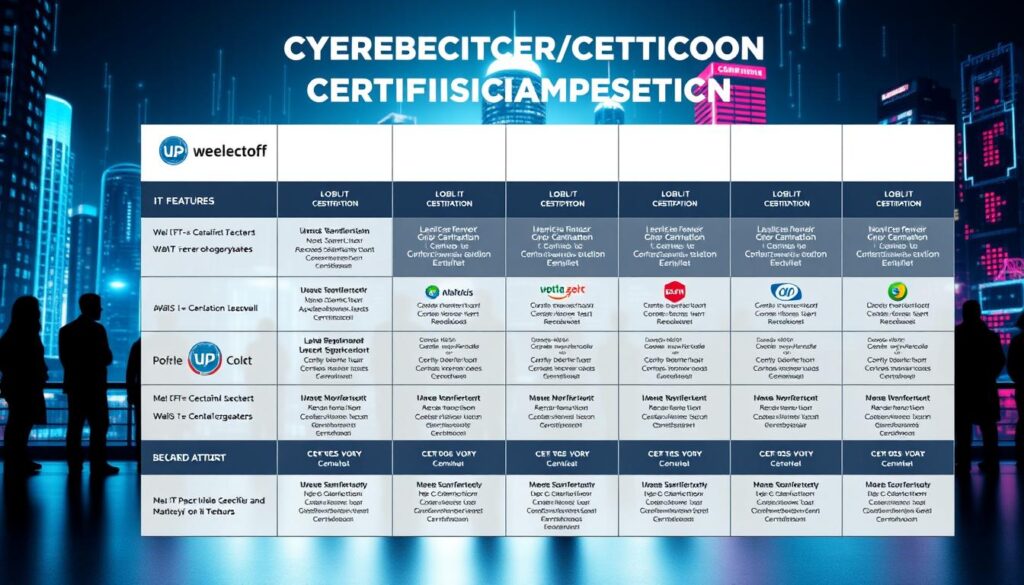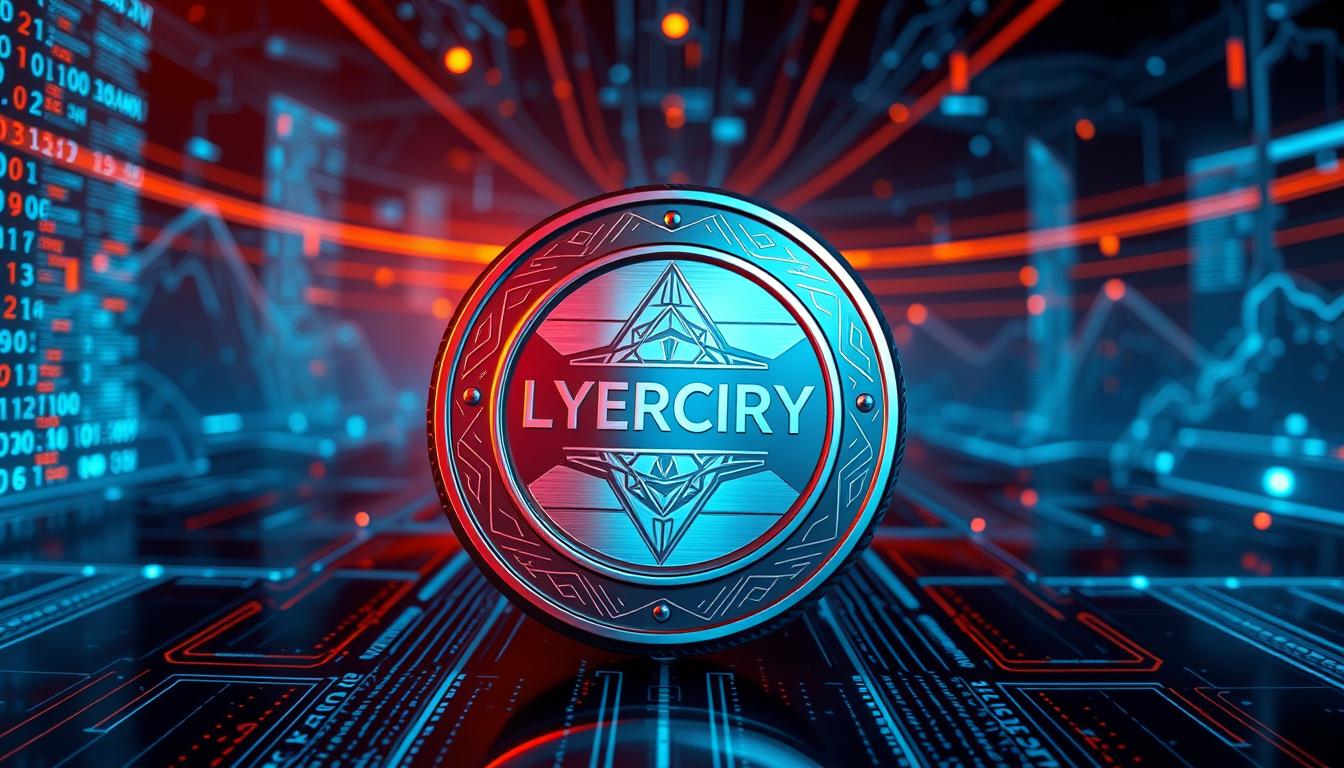In the rapidly evolving cybersecurity landscape, staying ahead of threats is crucial. Did you know that the demand for skilled ethical hackers has skyrocketed, with the global ethical hacking market expected to grow significantly?
As a professional looking to validate your skills in identifying vulnerabilities and securing digital assets, obtaining the Certified Ethical Hacker (certification) is a strategic move. This prestigious credential demonstrates your ability to think like a malicious hacker while maintaining ethical boundaries, making you a valuable asset in the cybersecurity industry.
As you embark on this journey, understanding the updated certification process and preparation strategies is essential. This guide will walk you through the roadmap to achieving this esteemed credential in 2024.
Key Takeaways
- Understand the evolving landscape of ethical hacking and its importance in cybersecurity.
- Learn the updated certification process and exam structure for 2024.
- Discover effective preparation strategies tailored to the current standards.
- Gain insights into the significance of identifying vulnerabilities in computer systems.
- Advance your career in information security with a prestigious credential.
Understanding the Certified Ethical Hacker (CEH) Certification
The CEH certification, offered by EC-Council, is a globally recognized credential that demonstrates your ability to think and act like a hacker while maintaining ethical standards. As a certified ethical hacker, you’ll gain a comprehensive understanding of how to identify and fix security vulnerabilities, making you an invaluable asset to organizations seeking to strengthen their security posture.
What is CEH Certification?
The CEH certification is a prestigious recognition of your skills in ethical hacking. It focuses on penetration testing, vulnerability assessment, risk management, and security auditing. By obtaining this certification, you’ll be equipped with the knowledge to identify security vulnerabilities in systems before malicious hackers can exploit them.
The CEH course covers a wide range of topics, including footprinting and reconnaissance, scanning networks, system hacking, malware threats, social engineering, denial-of-service (DoS) attacks, web application security, and cryptography. As a CEH-certified professional, you’ll have a deep understanding of the techniques used by hackers, allowing you to develop effective countermeasures to protect your organization’s assets.
- The CEH certification validates your ability to think and act like a hacker while maintaining ethical standards and legal boundaries.
- The certification covers essential areas, including penetration testing methodologies and vulnerability assessment techniques.
The Evolution of CEH Certification in 2024
The CEH certification has undergone significant updates in 2024 to address emerging cybersecurity threats. The latest version places increased emphasis on cloud security, IoT vulnerabilities, and advanced persistent threats, reflecting the evolving nature of the cybersecurity field. By staying up-to-date with these developments, you’ll be better equipped to tackle the complex security challenges faced by organizations today.
As a CEH-certified professional in 2024, you’ll gain a comprehensive understanding of the latest threats and vulnerabilities, as well as the techniques and tools used to mitigate them. This knowledge will enable you to make a meaningful contribution to your organization’s security efforts and stay ahead in the ever-changing landscape of cybersecurity.
CEH Certification Requirements 2024: An Essential Guide!
As you prepare for the CEH certification, understanding the eligibility criteria is crucial for a successful application. The EC-Council has outlined specific requirements for the CEH certification, focusing on experience, education, and training. To become a Certified Ethical Hacker, you must meet one of the two primary eligibility paths: either demonstrate two years of verifiable work experience in information security or complete an official EC-Council training program.
Experience Requirements
To qualify for the CEH certification based on experience, you need at least two years of work experience in the information security sector. This experience can be in various fields such as data protection, moral hacking, network security, or other related domains. The EC-Council requires verifiable work experience, so you’ll need to provide documentation that proves your role and responsibilities in your previous positions.
The types of roles that qualify as relevant experience include network administrators, security analysts, and system administrators. Your experience should demonstrate your ability to identify and address security vulnerabilities, making you a strong candidate for the CEH certification.
Educational Prerequisites
The educational prerequisites for the CEH certification have been refined for 2024. The EC-Council places greater emphasis on foundational knowledge in networking, operating systems, and basic security concepts. While there is no specific degree required, having a background in computer science, cybersecurity, or a related field can be beneficial.
You should have a solid understanding of networking protocols, operating systems, and security principles. This foundational knowledge will help you navigate the more advanced topics covered in the CEH certification.
Training Options for Eligibility
If you don’t have the required work experience, you can opt for an official EC-Council training program. The EC-Council offers various training options, including instructor-led training, online self-paced courses, and bootcamp programs. These training programs are designed to provide you with the necessary knowledge and skills to pass the CEH exam.
By completing an official EC-Council training program, you can satisfy the eligibility requirements and move forward with your certification journey. It’s essential to choose a training program that fits your learning style and schedule.
The CEH Certification Process
Embarking on the CEH certification journey requires a thorough understanding of the application process. To become a certified ethical hacker, you must navigate the EC-Council’s requirements carefully.
The CEH certification process begins with submitting your application to the EC-Council, which involves careful attention to detail and proper documentation of your qualifications and experience. This initial step is crucial, as it sets the stage for the subsequent verification and approval steps.
Application Procedure
To apply for the CEH certification, you’ll need to create an account on the EC-Council website, select your preferred exam format, and pay the application fee, which varies depending on your location and chosen training path. The application procedure is designed to ensure that candidates meet the necessary prerequisites for the certification.
The application fee is a critical component of the process, and it’s essential to understand that it’s separate from the actual exam fee. For candidates applying through the experience route, an Eligibility Application Form must be submitted along with a non-refundable fee of $100.
- The application process requires careful documentation of your qualifications and experience.
- You must create an account on the EC-Council website and select your preferred exam format.
- The application fee varies depending on your location and chosen training path.
Verification and Approval Steps
After submitting your application, the EC-Council will review your documents to confirm your eligibility. This verification process may include employment verification, educational credentials, and training certificates. Understanding the approval timeline is crucial for planning your certification journey.
The verification process typically takes 5-10 business days before you receive authorization to schedule your exam. Once approved, you’ll receive an exam voucher and instructions for scheduling your exam at a testing center or through a remote proctoring service.
- The EC-Council reviews your submitted documents to confirm your eligibility.
- The verification process typically takes 5-10 business days.
- Once approved, you’ll receive an exam voucher and instructions for scheduling your exam.
The CEH certification process has been streamlined in 2024 to provide a more user-friendly experience while maintaining the rigorous standards that ensure the credential’s value and integrity in the cybersecurity industry.
CEH Exam Structure and Format
To prepare effectively for the CEH certification, it’s essential to familiarize yourself with the exam’s structure and content. The CEH v12 exam is meticulously designed to assess your proficiency across various crucial information security domains.
The CEH exam is structured to evaluate your knowledge in several key areas, with a specific distribution of content. The domains covered include Background, Analysis/Assessment, Security, Tools/Systems/Programs, Procedures/Methodology, Regulation/Policy, and Ethics.
Exam Content and Domains
The CEH v12 exam content is distributed across several domains, with a focus on:
- Tools/Systems/Programs: 28.91%
- Security: 23.73%
- Background: 21.79%
- Analysis/Assessment: 12.73%
- Procedures/Methodology: 8.77%
- Regulation/Policy: 1.90%
- Ethics: 2.17%
Understanding the distribution of exam content will help you focus your preparation on the most critical areas.
Question Types and Scoring System
The CEH exam consists of 125 multiple-choice questions to be completed within a 4-hour timeframe. The questions vary in complexity and format, including scenario-based questions and practical application problems. The scoring system employs a dynamic model, with the passing threshold typically ranging between 60% and 85%, depending on the question set’s difficulty.
The dynamic scoring system means that the passing score isn’t fixed but is determined based on the difficulty of the questions. This approach ensures that the certification maintains its integrity and relevance.
Practical vs. Multiple-Choice Exams
It’s crucial to understand the difference between the standard CEH exam and the CEH Practical exam. The standard exam is multiple-choice, testing your theoretical knowledge, while the CEH Practical exam is a hands-on, lab-based assessment that evaluates your practical skills.
Choosing the right certification path depends on your career goals and the skills you want to demonstrate. Familiarizing yourself with the exam format and testing environment can significantly reduce test anxiety and improve your performance.
Key Points to Remember:
- The CEH exam tests your knowledge across various cybersecurity domains.
- The exam content is regularly updated to reflect emerging threats and technologies.
- Understanding the exam format and content distribution is crucial for effective preparation.
Essential Skills for CEH Certification Success
As you prepare for the CEH certification, it’s crucial to develop a mix of technical skills and soft skills that ethical hackers need. The role of an ethical hacker is multifaceted, requiring not only a deep understanding of technical aspects but also the ability to think critically and communicate effectively.
Technical Knowledge Requirements
To succeed in the CEH certification, you need strong technical skills in several key areas. Networking fundamentals are crucial, as they form the basis of understanding how systems communicate and where vulnerabilities might exist. Proficiency in operating systems, particularly Linux and Windows, is also essential, as these are common targets for hackers.
Understanding system architecture and network protocols is vital for analyzing potential attack vectors and developing effective mitigation strategies. Familiarity with common security frameworks and tools used in the industry will also enhance your ability to identify and address vulnerabilities.
Soft Skills for Ethical Hackers
Beyond technical knowledge, ethical hackers must develop critical soft skills. Analytical thinking and problem-solving abilities are essential for identifying subtle security issues that others might miss. Communication skills are also vital, as you’ll need to clearly document your findings and explain complex technical vulnerabilities to non-technical stakeholders.
Other important soft skills include patience and tenacity, as vulnerability assessment often involves methodical testing and repeated attempts to identify security weaknesses. Creativity is also key, as ethical hackers need to think outside the box and develop new strategies to anticipate and prevent attacks.
To summarize, successful CEH candidates possess a blend of technical knowledge and soft skills. Key skills include:
- Strong technical skills in networking fundamentals, operating systems, and security tools
- Understanding of system architecture, network protocols, and security frameworks
- Analytical thinking and problem-solving abilities
- Effective communication skills for reporting and explaining technical vulnerabilities
- Patience, tenacity, and creativity in identifying and addressing security weaknesses
Preparing for the CEH Certification
Preparing for the CEH certification exam requires a comprehensive approach that encompasses both theoretical knowledge and practical skills in ethical hacking.
Official Training Programs
The EC-Council offers official training programs for the CEH certification, which are delivered by authorized training centers. These 40-hour training programs are designed to provide comprehensive coverage of all exam topics and include valuable lab exercises to enhance practical skills.
The official training programs are available in various formats, including instructor-led classroom training, live online sessions, and self-paced online courses, catering to different learning preferences.

Self-Study Resources and Materials
For those who prefer self-study, numerous resources are available, including the official CEH courseware, third-party study guides, and video courses. Online forums where you can connect with other certification candidates are also a valuable resource.
To maximize your learning, it’s essential to utilize a variety of study materials, such as textbooks, online tutorials, and practice exams, to reinforce your understanding of ethical hacking concepts.

Practice Labs and Environments
Hands-on practice is crucial for developing practical skills in ethical hacking. Virtual labs and environments like TryHackMe, Hack The Box, and EC-Council’s iLabs provide safe and legal spaces to practice ethical hacking techniques.
Creating a personalized study plan that balances theoretical learning with practical exercises will help you maintain focus and track your progress as you prepare for the certification exam. Supplementing your learning with practice tests and exam simulators can also help familiarize you with the exam format and identify knowledge gaps.
Joining study groups or online communities dedicated to CEH certification can provide valuable support, additional resources, and opportunities to learn from others’ experiences throughout your preparation journey.
CEH Certification Costs and ROI

Understanding the costs associated with CEH certification is crucial for potential candidates. The investment in CEH certification involves several components, including application fees, training expenses, exam fees, and study materials, which can vary significantly based on your location and chosen preparation path.
Exam and Training Fees
The cost of CEH certification varies depending on location and study materials. On average, you can expect to pay between INR 3 lakhs to 15 lakhs ($1,000 – $1,500). The CEH exam costs between ₹80,000 – ₹1,20,000 ($1,000 – $1,500) depending on location and training provider.
Key Cost Components:
- The exam fee typically ranges from $1,000 to $1,500 for the standard multiple-choice exam.
- Training costs represent the largest expense, with official EC-Council training programs ranging from $2,000 to $3,500.
- Self-study options can reduce costs, with study materials, practice tests, and lab access costing between $300 and $800 combined.
Value Proposition and Return on Investment
When evaluating the return on investment, consider that CEH-certified professionals in the United States earn average salaries ranging from $90,000 to $130,000 annually. The certification offers improved job security, career advancement opportunities, and the ability to transition into specialized cybersecurity roles.
Benefits of CEH Certification:
- Improved job security and career advancement opportunities.
- The ability to transition into specialized cybersecurity roles.
- Many employers offer tuition reimbursement or training allowances to offset certification costs.
The CEH certification maintains its value for years, though you’ll need to budget for renewal fees and continuing education to stay current with evolving security threats and technologies.
Career Opportunities with CEH Certification
As you achieve CEH certification, you’ll unlock a wide range of career opportunities in the cybersecurity sector. This certification is a valuable asset that demonstrates your expertise in ethical hacking and vulnerability assessment, making you a highly sought-after professional in the industry.
The CEH certification opens doors to various job roles that are critical in today’s cybersecurity landscape. With this certification, you’ll be qualified for specialized positions that require a deep understanding of ethical hacking techniques and cybersecurity principles.
Job Roles for Certified Ethical Hackers
CEH-certified professionals can pursue a variety of job roles, including:
- Ethical Hacker
- Penetration Tester
- Security Analyst
- SOC Analyst
- Cybersecurity Consultant
These roles involve tasks such as vulnerability assessment, penetration testing, and security consulting, all of which are crucial for protecting organizations from cyber threats.
Industry Demand and Growth Prospects
The demand for CEH-certified professionals is on the rise, driven by the growing need for cybersecurity expertise across various industries. According to the Bureau of Labor Statistics, the employment of information security analysts is projected to grow by 32% during this decade, much faster than the average for all occupations.
Organizations across sectors such as financial services, healthcare, government agencies, and technology companies are actively recruiting ethical hackers to strengthen their security posture against increasingly sophisticated cyber threats.
Salary Expectations for CEH Professionals
CEH-certified professionals can expect highly competitive salaries. In India, salaries range from ₹8-15 LPA, while in the USA, they range from $90,000 to $130,000 per year. The salary expectations vary based on factors such as experience level, geographic location, and industry sector.
With experience, CEH-certified professionals can progress to senior roles such as Security Manager, Chief Information Security Officer (CISO), or specialized consultant positions, which command even higher compensation packages.
CEH vs. Other Cybersecurity Certifications

As you navigate the cybersecurity certification landscape, understanding the differences between CEH and other certifications is crucial. The cybersecurity field is rapidly evolving, and choosing the right certification can significantly impact your career trajectory.
The CEH certification is focused on ethical hacking, providing you with the knowledge and skills necessary to identify and exploit vulnerabilities in a system. In contrast, other certifications like CISSP take a broader approach, covering a wide range of security domains from a management perspective.
Differences Between CEH and Other Certifications
When comparing CEH to other popular cybersecurity certifications, several key differences emerge. For instance, OSCP (Offensive Security Certified Professional) is considered more technically challenging than CEH, with a strong emphasis on hands-on penetration testing skills. The OSCP certification features a grueling 24-hour practical exam, making it a natural progression for those who have already obtained their CEH.
CompTIA PenTest+ covers similar territory to CEH but is vendor-neutral and may be more accessible for beginners. However, it doesn’t carry the same industry recognition as the EC-Council credential. Understanding these differences is essential for making an informed decision about which certification is right for you.
Choosing the Right Certification Path
When choosing between cybersecurity certifications, consider factors such as your current skill level, career aspirations, preferred learning style, budget constraints, and the specific requirements of your target employers or industry sectors. Many cybersecurity professionals strategically obtain multiple certifications to demonstrate both breadth and depth of knowledge.
For example, you might start with CEH and later add complementary credentials like CISSP for management roles or OSCP for advanced technical positions. The ideal certification path depends on your career trajectory—CEH is excellent for those focusing on offensive security and penetration testing, while other certifications may be more suitable for those interested in security management, compliance, or specialized areas like cloud security.
Maintaining Your CEH Certification
After obtaining your CEH certification, you’ll need to renew it every three years to stay certified. This process ensures that your ethical hacking knowledge remains current in an ever-evolving threat landscape.
Renewal Timeline and Importance
Your CEH certification is valid for three years from the date of certification. Renewal is crucial as it demonstrates your commitment to staying current in the field. Failing to renew your certification on time results in its expiration, requiring you to retake the entire exam to regain your certified status.
Renewal Requirements and Process
The renewal requirements include earning 120 EC-Council Continuing Education (ECE) credits during your three-year certification period. You can accumulate these credits through various professional development activities such as attending cybersecurity conferences, completing additional training courses, or earning complementary certifications.
The renewal process involves submitting documentation of your ECE credits through the EC-Council ASPEN portal, along with paying the renewal fee, which is typically $80 for members and $100 for non-members.
Continuing Education Credits
You can earn ECE credits through multiple channels, including publishing articles or research papers, contributing to open-source security projects, or attending industry events. EC-Council provides a straightforward tracking system for monitoring your accumulated ECE credits, making it easier to plan your professional development activities throughout the three-year certification period.
By maintaining your CEH certification, you ensure that your skills and knowledge stay up-to-date, allowing you to effectively counter new vulnerabilities and attack techniques that emerge regularly.
Conclusion
The CEH certification is more than just a credential; it’s a testament to your expertise in ethical hacking and your ability to identify vulnerabilities within digital ecosystems.
As you pursue this certification in 2024, you’re not only enhancing your skills but also significantly boosting your career prospects in the cybersecurity industry. The journey requires dedication and strategic preparation, but the professional opportunities, salary potential, and job security it offers make it a worthwhile investment.
By obtaining your CEH certification, you demonstrate your commitment to security and ethical hacking practices, making you a valuable asset to organizations seeking to protect their digital assets. Remember, certification is just the beginning; continuing education and practical experience are essential for long-term success in this dynamic field.
By following this guide, you’re well on your way to meeting the CEH certification requirements and embarking on a rewarding career in cybersecurity.
FAQ
What is the eligibility criteria for the Certified Ethical Hacker exam?
To be eligible for the Certified Ethical Hacker exam, you need to meet specific experience and educational prerequisites, or complete an official training program approved by the International Council of Electronic Commerce Consultants (EC-Council).
How long is the Certified Ethical Hacker certification valid?
The Certified Ethical Hacker certification is valid for three years from the date of passing the exam. You need to earn continuing education credits to maintain your certification.
What kind of job roles can I expect with a Certified Ethical Hacker certification?
With a Certified Ethical Hacker certification, you can expect job roles such as information security analyst, penetration tester, vulnerability assessor, and security consultant.
How does the Certified Ethical Hacker exam differ from other cybersecurity certifications?
The Certified Ethical Hacker exam focuses on the techniques and methodologies used by hackers, with an emphasis on identifying vulnerabilities and weaknesses in computer systems. It differs from other certifications like OSCP, CISSP, and CompTIA PenTest+ in its specific focus on ethical hacking.
What are the benefits of becoming a Certified Ethical Hacker?
Becoming a Certified Ethical Hacker can enhance your career prospects in the cybersecurity industry, increase your earning potential, and demonstrate your expertise in identifying and mitigating security threats.
Can I prepare for the Certified Ethical Hacker exam through self-study?
Yes, you can prepare for the Certified Ethical Hacker exam through self-study using official study materials, online resources, and practice labs. However, EC-Council also offers official training programs for those who prefer a structured learning environment.
What is the cost associated with the Certified Ethical Hacker certification?
The cost associated with the Certified Ethical Hacker certification includes exam fees, training costs, and study materials. The total cost can vary depending on your location and the training provider you choose.
How does the Certified Ethical Hacker certification impact salary expectations?
Holding a Certified Ethical Hacker certification can significantly impact your salary expectations, as it demonstrates your expertise and commitment to the field of cybersecurity. Certified professionals can expect higher salaries compared to non-certified individuals.
